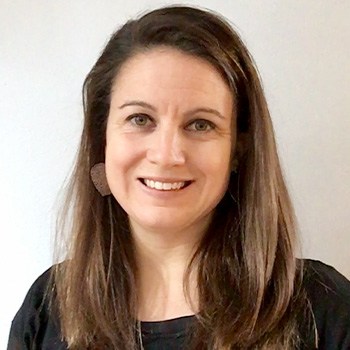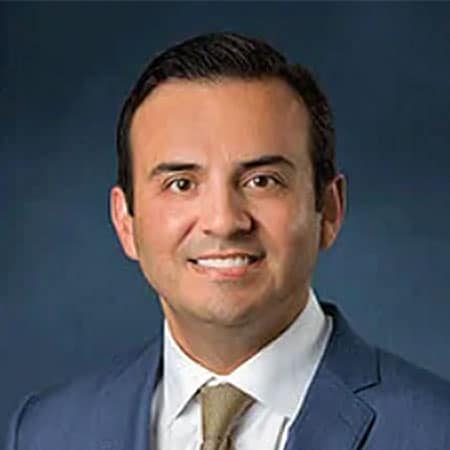Upcoming Free Opportunities for Families with PANS and PANDAS Specialists
A Free Webinar and Q&A to Review Octapharma’s Superiority Study To Compare The Effect of IVIG (Panzyga) Versus Placebo in Patients with PANS/PANDAS
April 25, 2024. 3:00 pm PT, 4:00 pm MT, 5:00 pm CT, 6:00 pm ET
Join us on April 25th to learn more about the phase III trial of IVIG in patients with Pediatric Acute-onset Neuropsychiatric Syndrome (PANS/PANDAS).
Huub Kreuwel PhD is the VP of scientific and medical affairs of Octapharma USA. He oversees a team of medical doctors, nurses and pharmacists to provide medical education to patients and health care practitioners. He received his PhD in immunology from the Free University of Amsterdam in collaboration with The Scripps Research Institute, La Jolla. He has published research in Immunity, Journal of Immunology, Immunotherapy and Current Opinion in Immunology.
Snehal Udavat is the Associate Director of Clinical operations at Octapharma USA. He oversees a team of clinical researchers and manages clinical trials within the Immunology and Critical Care Therapeutic Areas. He has been working with Octapharma for the past 10 years and has been in the industry for the past 15 years.
 Huub Kreuwel, PhD
Huub Kreuwel, PhD
Vice President Scientific and Medical Affairs, Octapharma USA, Inc.
 Snehal Udavat
Snehal Udavat
Associate Director, Clinical Operations, Octapharma USA, Inc.
Anna Conkey
Neuroimmune Foundation, Executive Director and Founder
Making the Most of Your Precious Energy: Managing Challenging Moments with Your Child or Teen with Eileen Devine, LCSW
May 2, 2024. 5:00 pm PT, 6:00 pm MT, 7:00 pm CT, 8:00 pm ET
As parents, we have an opportunity to react in ways that either set us on a path towards increased calm and connection with our child or on a path that moves us towards resentment, tension, and escalated behavioral symptoms. Knowing how to best use your precious and limited energy inside and outside of the hard moments with your child or teen is key to reacting more consistently in ways that help your child settle and experience fewer challenging behaviors.
In this webinar, we will look at what steps you can take with the goal of strengthening your relationship with your child and supporting them in ways that decrease challenging behaviors.
 Eileen Devine, LCSW
Eileen Devine, LCSW
Therapist, Neurobehavioral Consultant
Anna Conkey
Neuroimmune Foundation, Executive Director and Founder
Webinar Recordings

Erica Guetzlaff, PharmD
Understanding the Medications Used in PANS and PANDAS

Madeleine Cunningham, PhD
Update on The Cunningham Panel and Related Research

Shannon Delaney, MD
Neuropsychiatric Illness Associated with Lyme and Tick-Borne Illness

Tina Motley
EMDR 101 for Families of Children and Young Adults with PANS/PANDAS/Encephalitis

Beth Maloney, Esq
Protecting Your Child: Legal Issues Arising for PANS/PANDAS Families and How to Advocate Without Increasing the Risk

James Adams, PhD
Overview of Microbiota Transplant for Autism Studies

Lawrence Steinman, MD
Does Molecular Mimicry Explain Epidemiology Linking EBV & MS? …

Eileen Devine, LCSW
Recognizing and Addressing Trauma in the Sibling Experience

Jennifer Frankovich, MD
Rheumatology & Psychiatry – What We Can Learn From Overlapping Conditions

Margo Thienemann, MD
PTSD in Parents of Children with PANS

Cheryl Standing, MD
PANS Cases: Through the Eyes of a Pediatrician

Erin Masterson, PhD, MPH
Preliminary Findings from the International PANS Registry Epidemiology Study

Ruy Carrasco, MD
Clinical Workup and Treatment of Rheumatological Diseases That Have Psychiatric Co-Morbidities

Andrew Baumel, MD
A Pediatrician’s Perspective on Treating Mild to Moderate PANS

Naresha Saligrama, MD
T Cells and Neurodegeneration

Cynthia Kapphahn, MD, MPH
Disordered Eating in PANS

Dritan Agalliu, PhD
The Role of the Adaptive Immunity and Genetic Risk Factors in Vascular and Neuronal Dysfunction in Post Infectious Autoimmune Encephalitis

Cynthia Wang, MD
Neuropsychiatric Symptoms in Pediatric Multiple Sclerosis

Harumi Jyonouchi, MD
A Possible Role of Immune Mediated Inflammation in Autism Spectrum Disorders

Jessica Schaffer
Nervous System Know-How for Parents: How to Harness the Wisdom of Your Body to Navigate Through Challenging Times
Disclaimer
The opinions expressed by the expert hosts should not be interpreted as medical advice pertaining to a specific child’s case, but rather simply reflect the experience of these expert clinicians in treating similar cases or encountering similar situations in the past. Each individual’s case is unique and the expert hosts do not have the ability to examine the child nor confirm the accuracy of the clinical information, thus cannot and will not make specific treatment recommendations on any child’s case but instead provide more general information based upon clinical experience.
Webinars by Eileen Devine

The recordings by Eileen Devine below are free and accessible on demand.
Eileen is a therapist with a dozen years of clinical experience who works with parents of children with special healthcare needs. She is an instructor for the Post-Master’s Certificate in Adoption and Foster Family Therapy through Portland State University’s Child Welfare Partnership where she teaches other clinicians how to use the neurobehavioral model in their work with families. She also has the great fortune of facilitating dozens of other trainings and workshops for parents and clinicians each year on a variety of topics that are relevant to the experience of being a parent of a child with a neurobehavioral condition. In addition to this professional experience, Eileen has the lived experience of parenting a child with significant neurobehavioral challenges. Her goal is to support parents and caregivers of children with these frequently understood brain-based conditions on their unique parenting journey so that they, their children, and their family can thrive. Eileen has become a top therapist working with families of children exhibiting PANDAS symptoms. While PANS treatment and PANDAS treatment questions are best for our PANS medical specialists, Eileen is a pro at helping families navigate the confusing and challenging behavioral symptoms of inflammatory brain disorders. Eileen helps families navigate PANDAS symptoms in her webinars.
Also visit Eileen’s column for parents of children with neuroimmune disorders to anonymously ask their pressing questions.
Recognizing and Addressing Trauma in the Neuroimmune Parent Experience
Research tells us unequivocally that when an individual experiences trauma, it takes a significant toll on their spiritual, emotional, and physical well-being. What happens then, to a parent who experiences repeated trauma as a result of parenting a child who lives with a neuroimmune illness and challenging behavioral symptoms? What can parents in this unique position do to protect against the impact of the trauma they endure while also parenting their child in the way they require? This webinar will discuss signs and symptoms of trauma as it relates to the parent experience. It will highlight relational stress, (leading to) compassion fatigue, (and then leading to) burnout so that parents can recognize when this is presents in their life and can take necessary support to address and heal from it. And finally, this webinar will outline the importance of nervous system health and stability and the small, but meaningful steps that can be taken each day to build resiliency and heal from the trauma endured. With Therapist Eileen Devine.
Executive Function in Individuals with Neuroimmune Conditions
Parenting children with neuroimmune conditions is incredibly complex. This webinar encourages us to parent through a brain-based lens and understand how our child’s unique brain function is directly connected to their challenging behaviors, allowing a new set of possibilities on how we can best support them to begin to emerge. With Therapist Eileen Devine.
Our Greatest Parenting Tool: Self Regulation
As a parent, our greatest and most effective tool is our ability to self-regulate. When we have the ability to regulate our own emotional state, we can then co-regulate with our child, helping them find calm and equilibrium when they are experiencing their own big emotions. Contrary to what many think, this is not simply a psychological or emotional process underway, but is one that resides deep within our nervous system and our child’s nervous system. In this webinar, we will talk about what is meant by self-regulation and co-regulation and why it is important for us to be cognizant of these two elements as parent. We will talk about how this might look different when parenting a child with a neuroimmune illness and strategies for increasing our ability to stay regulated when our child is in the midst of incredibly challenging behaviors. No matter how little or how much we know about this topic, there is always room to grow in our understanding of ourselves from this nervous system lens, so we hope you’ll join us for this important discussion. With Therapist Eileen Devine.
Values, Behavior, and Our Emotional Response: Parenting Children with Neuroimmune Disorders
What happens when we are parenting a child with neurobehavioral challenges whose behaviors clash daily with our deeply held beliefs? How do we understand the source of those visceral, instantaneous reactions to behaviors we have as parents and respond to our child from a neurobehavioral perspective? Join us as we learn to recognize when our values are getting in the way of us parenting from a neurobehavioral, brain-based approach. Learn to slow down reactions to challenging behaviors, the role of grief and loss in the process, and how to use the neurobehavioral approach. With Therapist Eileen Devine.
Managing the Toll of Caregiver Trauma and Building Resiliency in Families with Children with Special Healthcare Needs
Join us as we delve into the topics of relational stress, caregiver burnout, compassion fatigue and the impact on our physical and mental well-being, relationships, and family systems. This webinar led by therapist Eileen Devine will look at these topics through the unique lens of caring for a child with significant health challenges and how parents can take measurable and concrete steps to build resiliency within themselves and within our parenting partnerships. With Therapist Eileen Devine.
Navigating the Dynamics of Sibling Relationships in Families of Children with Neuroimmune Disorders
When you have a child that requires constant supervision and care, howcan you balance this with the needs of your other children? How do you support your other children when they have experienced the trauma oftheir sibling’s meltdowns, rages, or hospitalizations? How do you help them understand the illness without feeling as if you are creating a double standard or excuses for unacceptable behavior? And how do you balance the needs of all your children when one of them requires everything you have to give? This webinar also features an extended Q&A. With Therapist Eileen Devine.
Understanding and Applying a Brain Based Approach to Parenting Children with Neuroimmune Disorders
Join us as we learn how parents and caregivers can provide support for children with neuroimmune disorders from a neurobehavioral lens, the connection between brain function and (challenging) behavioral symptoms, how our values and beliefs factor into our ability to support from a neurobehavioral perspective, and how to create accommodations to reduce the behavioral symptoms and build a stronger connection in the process. With Therapist Eileen Devine.
Back to School: Supporting Children with Neuroimmune Disorders in the Classroom
Steeped in neuroscience, yet easy to understand through a neurobehavioral lens, this webinar will clearly articulate why traditional classroom behavior management systems don’t work for children with neuroimmune disorders and what children can do instead. This webinar is for parents as well as teachers. With Therapist Eileen Devine.
Educational Webinars
Advocating for Your Child in an Educational Setting
Shara Virlan, educator, reading specialist, and parent of a child with PANDAS presents on being an advocate for your child with a neuroimmune disorder, when and how to request a special education referral, the difference between an IEP and 504 plan, and accommodations and modifications that may be helpful for your child. (30 minutes. Free)
PANS/PANDAS in the Classroom:
Information for Educators
Shara Virlan, educator, reading specialist, and parent of a child with PANDAS presents Information For Educators, a free 35 minute presentation for educators on working with children with PANS and PANDAS in the classroom.
 Huub Kreuwel, PhD
Huub Kreuwel, PhD Snehal Udavat
Snehal Udavat
 Eileen Devine, LCSW
Eileen Devine, LCSW





